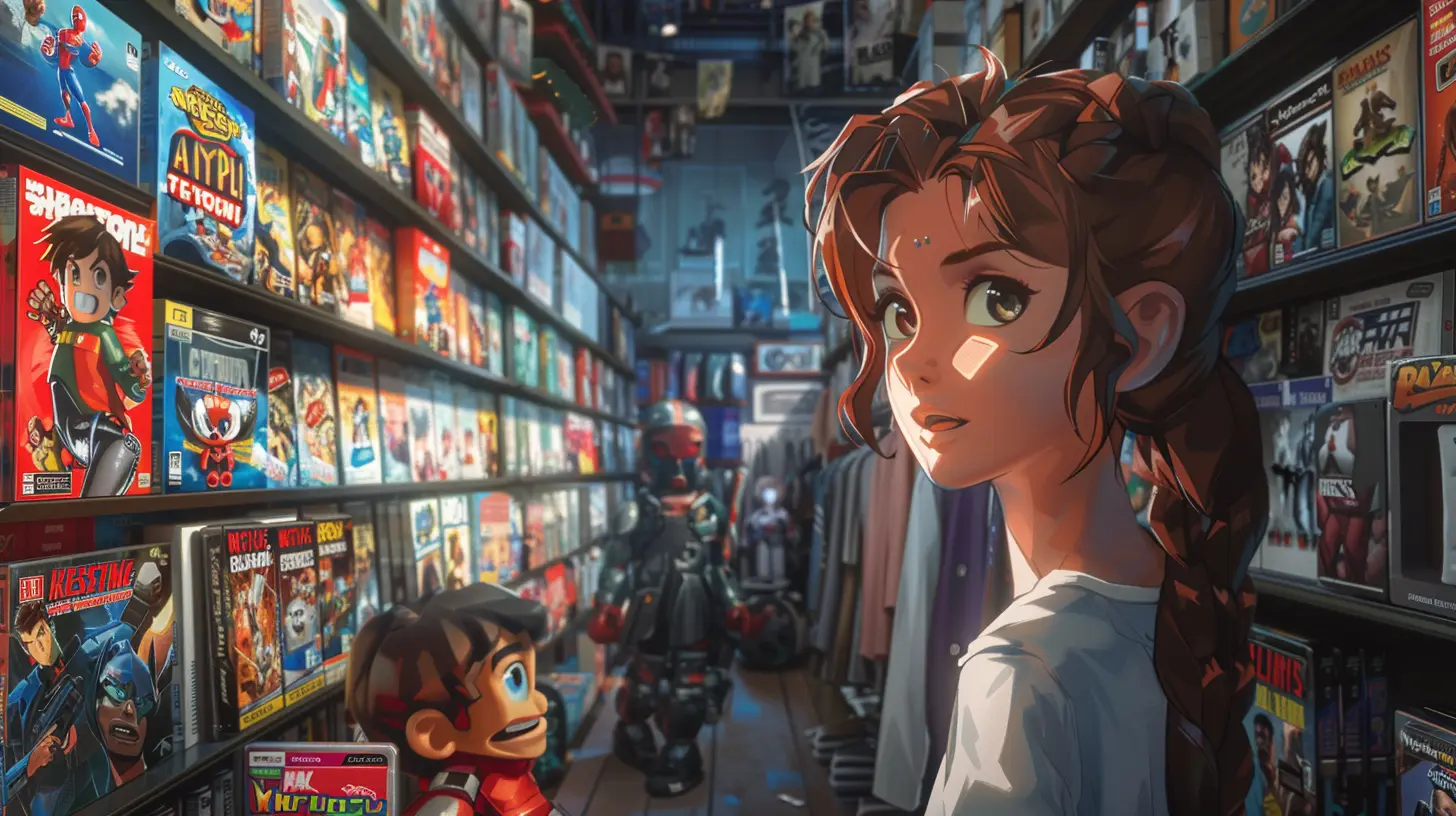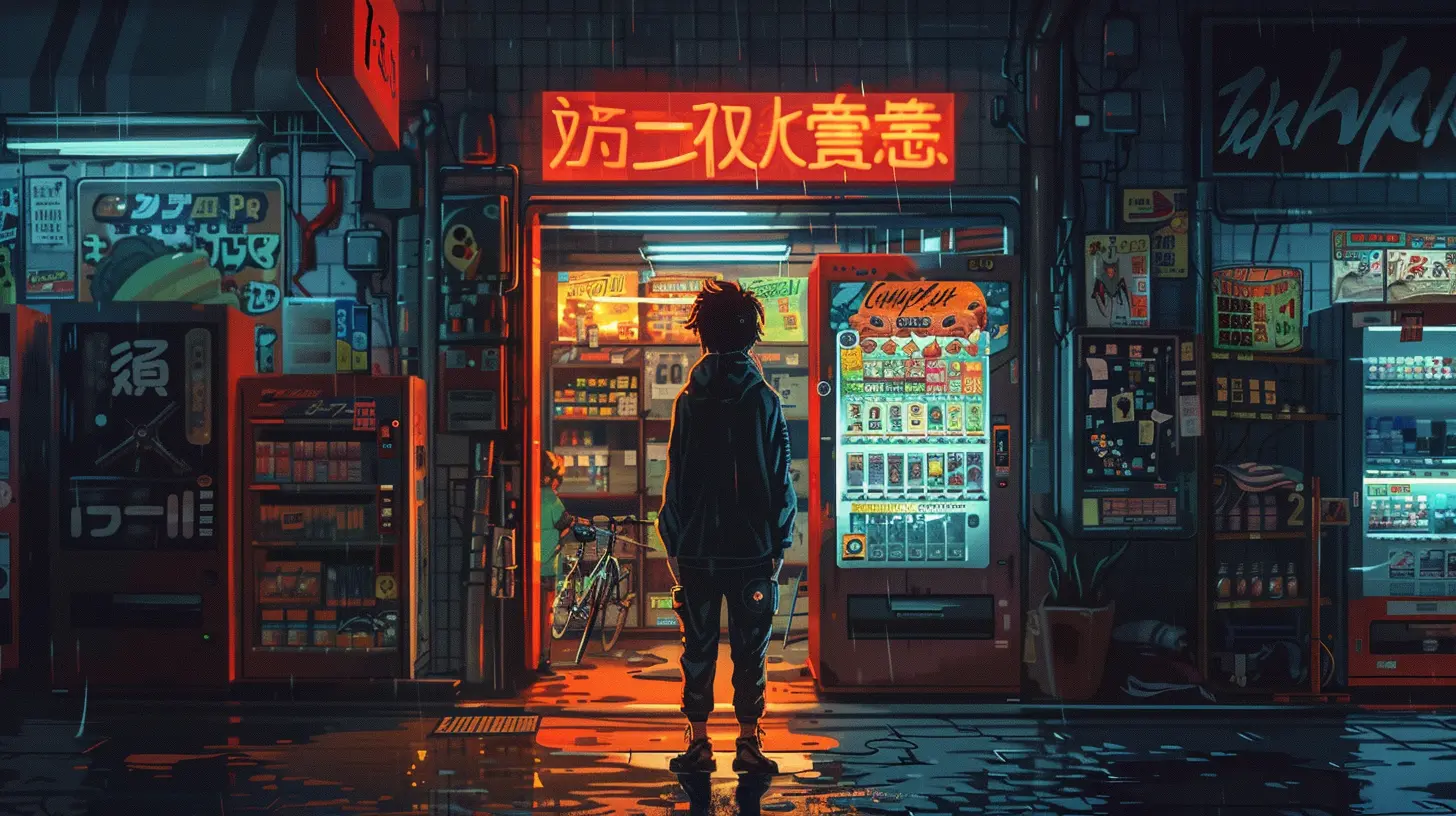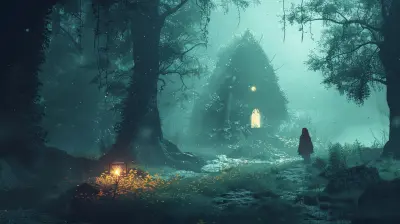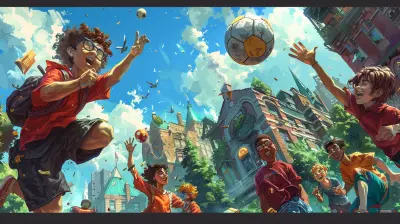The Strangest Reasons Games Got Pulled from Stores
21 November 2025
Ever stumbled across a game trailer, got hyped, made a note to buy it—and then poof—it’s just…gone? Not delayed. Not re-skinned. Just completely yanked off digital shelves. You’re not alone. The gaming world is full of surprises, but some games have vanished for reasons so bizarre, they sound like plots from the games themselves.
In this article, we’re peeling back the layers of gaming history and diving into the weirdest, wildest, and truly strange reasons some games got pulled from stores. This isn’t just about bugs or copyright battles—oh no, we’re talking secret nudity, political storms, haunted cartridges (okay maybe not haunted), and more.
So grab your controller—let’s hit “start” on this strange journey!
A World Where Games Vanish Overnight 🌌
We live in the era of digital distribution. Steam, PlayStation Store, Xbox Marketplace, and the Nintendo eShop have made it easier than ever to get your hands on a game. But with that convenience comes a darker truth—games can disappear just as quickly.And when publishers hit the big red "remove from store" button, it’s often not for typical reasons. Sometimes, it's because of human error. Other times, it's... well, let's just say weirder than fiction.
Let’s talk about some of those WTF moments.
1. Too Hot for the Screen: The "Nudity Glitch" Games 🔞
You’d think developers would double-check what they're putting into their games before launch, right? Not always.Case in point: Hot Coffee Mod from Grand Theft Auto: San Andreas. Originally hidden in the game’s code, this mini-game allowed players to take their in-game relationship to the next level—way beyond what ESRB initially rated it for. Modders discovered it, unlocked it, and—in what felt like overnight—GTA: San Andreas got ripped from shelves.
Even worse? Rockstar didn't even include the content on purpose in the final product... but because it was still there, the game got re-rated from M to AO (Adults Only). Retailers panicked, and the game got pulled.
So yeah... always clean up your code, folks.
2. A Bit Too Real: Games That Mimicked Real-Life Tragedies 🎭
Sometimes, timing is everything... and not in a good way.Take Six Days in Fallujah, for example. This tactical shooter aimed to recreate real-life military operations. Sounds intriguing, right? But its subject—an actual battle during the Iraq War—hit way too close to home for many.
Veterans, families, and critics slammed the game as being too raw and insensitive. Even before full release, major publishers backed out. The backlash was so intense, the game went into development limbo, effectively pulled from availability.
Ironically, years later, it was revived with a more respectful tone. But it proved one thing: when games get too real, they risk crossing into dangerous territory.
3. Offensive Much? Cultural Missteps & International Backlash 🌍
The global gaming audience is massive, but that means developers have to be extra careful not to offend anyone. Easier said than done.Take LittleBigPlanet. Cute, creative, family-friendly—what could go wrong?
Well, one of the background music tracks included verses from the Quran. Innocent mistake? Sure. But in some Muslim countries, combining sacred texts with music and gameplay is a big no-no.
Sony ended up delaying the game and pulling early copies from shelves to remove the content. All that for a song.
Then there’s Devotion, a Taiwanese indie horror game. It got pulled from Steam after players spotted a hidden meme comparing China’s president to Winnie the Pooh. For real.
The backlash was fierce, especially from the Chinese government. The game disappeared faster than honey at a bear picnic—and years later, it still hasn’t officially resurfaced.
4. When Bugs Become Boss Fights 🐞
We’re not talking about a few quirky frame drops or glitched textures here. Some games were so broken at launch, the best fix was just removing them altogether.Cue the dramatic music for Cyberpunk 2077. Oh boy.
What was supposed to be the next-gen masterpiece turned into a crash-fest. On PS4 and Xbox One, players encountered floating cars, invisible pants, quest-breaking bugs—you name it.
Sony did something unprecedented: they removed the game from the PlayStation Store and offered full refunds. Yup—an AAA title from one of the most hyped-up studios ever, yanked straight off the digital shelf.
It eventually came back (after patches, apologies, and memes galore), but the damage was done.
5. Publisher Drama and Legal Brawls ⚖️
Gamers love a bit of drama in their stories—but not when it’s behind the scenes.P.T., the now-legendary "playable teaser" for a Silent Hills reboot, was mind-blowing. Fans were obsessed. Then suddenly—Konami pulled the plug on the whole project. Not just the game, but the entire reboot.
Why? Creative differences, studio politics, and likely some tension between Konami and legendary director Hideo Kojima. As a result, P.T. was ripped from the PlayStation Store and couldn’t even be re-downloaded by those who already had it.
To this day, consoles with P.T. installed are being sold like rare collector’s items. Now that’s digital heartbreak.
6. Pranks Gone Wild: When Modders Go Too Far 👨💻
Let’s rewind to 2005 again—The Elder Scrolls IV: Oblivion was a massive hit. But guess what? Modders discovered unused files and reactivated them.One such discovery? A topless skin for certain female characters. Once word got out, teens rejoiced... and the ESRB reevaluated the game’s rating from T to M. Retailers recoiled. Bethesda had to scramble to clean it up.
Here’s a lesson: what you leave in your code, stays in your code—and might get you in trouble.
7. Outcry Over Animal Cruelty (Yes, Really) 🐾
Now here’s a kicker few saw coming.In Cooking Mama: Cookstar, a Twitter rumor sparked claims that the game was... secretly mining cryptocurrency via players' Switch consoles. Totally false, but the buzz went viral.
Then came allegations of animal abuse—due to cooking meat in the game. Yes, really.
People accused it of promoting cruelty, and the devs got caught in legal disputes over who actually owned the publishing rights. Result? The game was pulled faster than you can say “Well done steak.”
Weirdest part? It somehow became a cult classic because of its chaotic release.
8. Music Licensing Mayhem 🎶
We’re used to licensing issues in TV and film, but games aren't immune either.Take Alan Wake. This atmospheric thriller incorporated licensed music into crucial scenes. But after the licenses expired? The game had to be pulled from digital stores until Remedy could renew the rights.
The same thing happened to GTA IV, where a patch had to remove certain songs from in-game radios to comply with outdated licenses.
It’s like buying a movie, then having the soundtrack muted a few years later. Not cool, right?
9. Not What It Was Promised To Be 🚫
Remember The War Z? No? Well, there’s a reason for that.This zombie survival game made headlines... for all the wrong reasons. It promised massive multiplayer action, deep survival mechanics, and frequent updates. What players actually got? A glitchy, incomplete mess.
Steam stepped in, receiving a flood of complaints. Eventually, Valve removed it, stating the game was released in a "premature state".
The takeaway? Don’t overpromise and underdeliver—or your game might vanish quicker than a ghost in a graveyard.
10. Censorship and Region Locking Woes 🌏
Sometimes, it’s not even the devs’ doing—it’s the politics.In places like China, Australia, and Germany, games can be banned for violence, gore, or content that clashes with local laws.
Take Manhunt 2. It was banned in multiple countries for being too violent—even after developers toned it down. In Germany, Wolfenstein games used to get banned or altered due to Nazi imagery.
While most bans are regional, some games are removed globally just to avoid controversy. It’s a tightrope act between artistic freedom and public policy—one that developers walk every day.
Final Thoughts: The Curious Case of Canceled Fun 🎮
It's a weird world out there. One moment a game is being celebrated on Game Awards night, and the next, it's vanishing from digital stores like it never existed.What’s the lesson here? Game development is tricky. It’s not just coding and creativity—it’s politics, legal hoops, public opinion, and a whole lot of unforeseen chaos.
As gamers, we often take for granted how many moving parts are involved in keeping our favorite titles available, playable, and squeaky clean from controversy.
So the next time you find a game removed from stores, dig a little deeper—there’s probably a strange story behind it.
Pro Gamer Tip: Backup Your Digital Library 🛡️
These days, it’s smart to download and store your purchased games—especially indie or controversial ones. Once they’re gone, getting them back isn't always an option. Ask P.T. players!And hey, keep following the drama. The gaming world is one heck of a ride, and there's never a dull moment.
all images in this post were generated using AI tools
Category:
Game FailsAuthor:

Emery Larsen
Discussion
rate this article
1 comments
Isaiah McAdams
In the ever-evolving landscape of gaming, it's intriguing how unforeseen circumstances can lead to a title's removal. These stories highlight the delicate balance between creativity, commerce, and cultural sensitivities, reminding us that gaming is as much about context as it is about content.
November 21, 2025 at 4:55 PM

Emery Larsen
Thank you for your insightful observation! It truly is fascinating how external factors can shape the gaming landscape.


